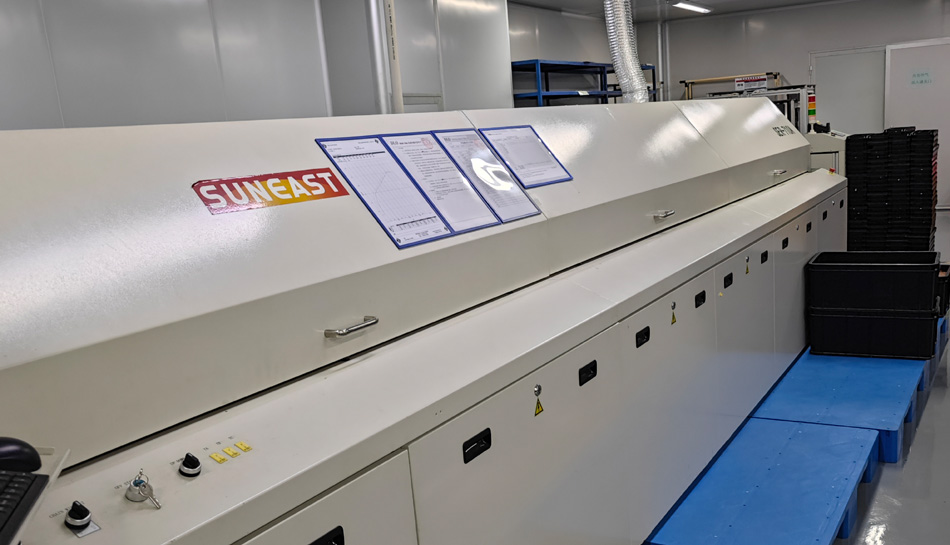- English
- Español
- Português
- русский
- Français
- 日本語
- Deutsch
- tiếng Việt
- Italiano
- Nederlands
- ภาษาไทย
- Polski
- 한국어
- Svenska
- magyar
- Malay
- বাংলা ভাষার
- Dansk
- Suomi
- हिन्दी
- Pilipino
- Türkçe
- Gaeilge
- العربية
- Indonesia
- Norsk
- تمل
- český
- ελληνικά
- український
- Javanese
- فارسی
- தமிழ்
- తెలుగు
- नेपाली
- Burmese
- български
- ລາວ
- Latine
- Қазақша
- Euskal
- Azərbaycan
- Slovenský jazyk
- Македонски
- Lietuvos
- Eesti Keel
- Română
- Slovenski
- मराठी
- Srpski језик
How can a PCBA factory's technical expertise achieve success in complex projects?
2025-10-27
In the rapidly evolving electronics industry, the successful implementation of complex projects is crucial for PCBA (Printed Circuit Board Assembly) factories. As product designs become increasingly complex, the factory's technical expertise directly impacts project success rates. This article will explore how a PCBA factory's technical expertise can achieve success in complex projects.

1. Characteristics and Challenges of Complex Projects
Diverse Demands
Complex projects often involve a variety of different technologies and components, requiring PCBA factories to possess a wide range of expertise and technical capabilities. The diverse range of circuit boards, components, and functional requirements further complicates project management.
High Quality Requirements
For complex projects, customers often have higher expectations for product quality and reliability. This means that PCBA factories must maintain strict quality control throughout the production process, ensuring that every step meets industry standards.
2. Components of Technical Strength
2.1 Advanced Production Equipment
High-Precision Placement Machines
Modern PCBA factories should be equipped with high-precision placement equipment capable of precisely placing components on complex circuit boards. This not only improves production efficiency but also reduces failure rates caused by misalignment.
Automated Inspection Systems
Advanced technologies such as automated optical inspection (AOI) and X-ray inspection can promptly detect production issues. The application of these inspection methods ensures the quality of every component in complex projects.
2.2 Comprehensive Process Flow
Standardized Process Documentation
PCBA factories should develop detailed process flow documentation, ensuring clear operational guidelines for each production step. This standardized management reduces errors during production and improves overall production efficiency.
Flexible Process Adjustment Capabilities
Facing complex projects, factories must possess flexible process adjustment capabilities. They can promptly adjust production processes based on specific project requirements to ensure that the final product meets customer requirements.
3. Personnel Quality and Training
Technical Team Professionalism
The successful implementation of complex projects requires a highly qualified technical team. PCBA factories should prioritize professional training for team members, ensuring they maintain abreast of the latest technologies and industry standards, thereby increasing project success rates.
Continuous Skills Improvement
Through regular technical exchanges and skills training, factories can maintain their team's technical expertise and enhance their ability to handle complex projects. Establish a knowledge-sharing mechanism to enable team members to learn from each other and improve overall quality.
4. Strengthen Project Management
The Key Role of the Project Manager
The role of the project manager is particularly important in complex projects. Effective project management requires not only coordinating the work of various departments but also ensuring a balance between project schedule and quality. Project managers should possess extensive industry experience and excellent communication skills to promptly resolve issues during project implementation.
Implement Risk Management
Risk assessment and management for complex projects is crucial to ensuring project success. PCBA manufacturers should proactively identify potential risks and develop appropriate countermeasures to minimize the impact on project schedule and quality.
5. Customer Communication and Feedback
Regular Customer Communication
During the implementation of complex projects, PCBA manufacturers should maintain close communication with their customers to promptly understand their needs and feedback. This communication not only improves customer satisfaction but also helps the factory make timely adjustments during the project.
Building Long-Term Partnerships
Through excellent communication and service, PCBA manufacturers can establish long-term partnerships with their customers. This trusting relationship not only helps smooth the progress of complex projects but also lays a solid foundation for future collaborations.
Conclusion
When implementing complex projects, a PCBA factory's technical prowess is crucial to success. By introducing advanced production equipment, comprehensive process flows, a professional technical team, and effective project management, a factory can enhance its ability to handle complex projects. Furthermore, maintaining good communication with clients and providing timely feedback and adjustments will further ensure successful project implementation. In the rapidly evolving electronics industry, only by continuously improving technical prowess and service levels can a PCBA factory remain victorious in complex projects.
-
Delivery Service






-
Payment Options









